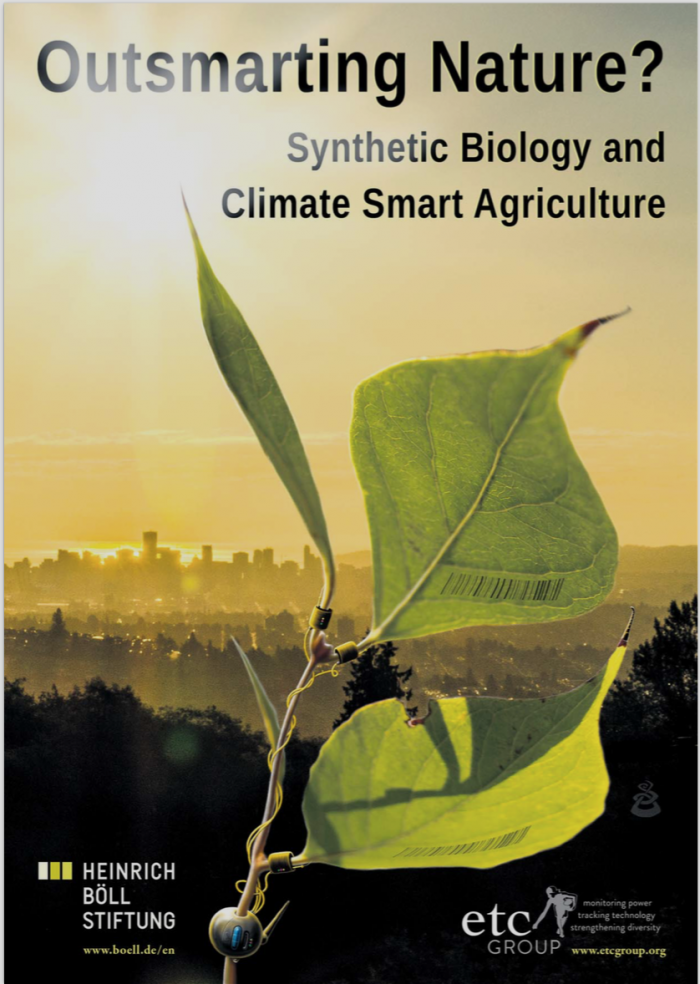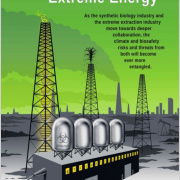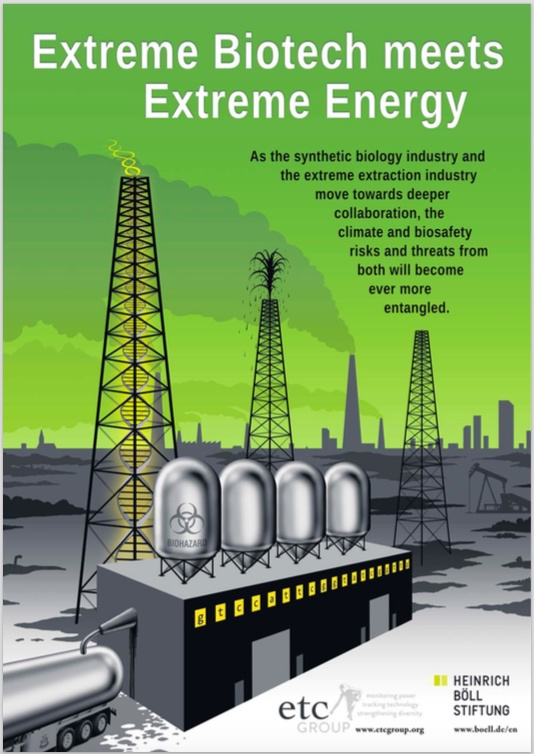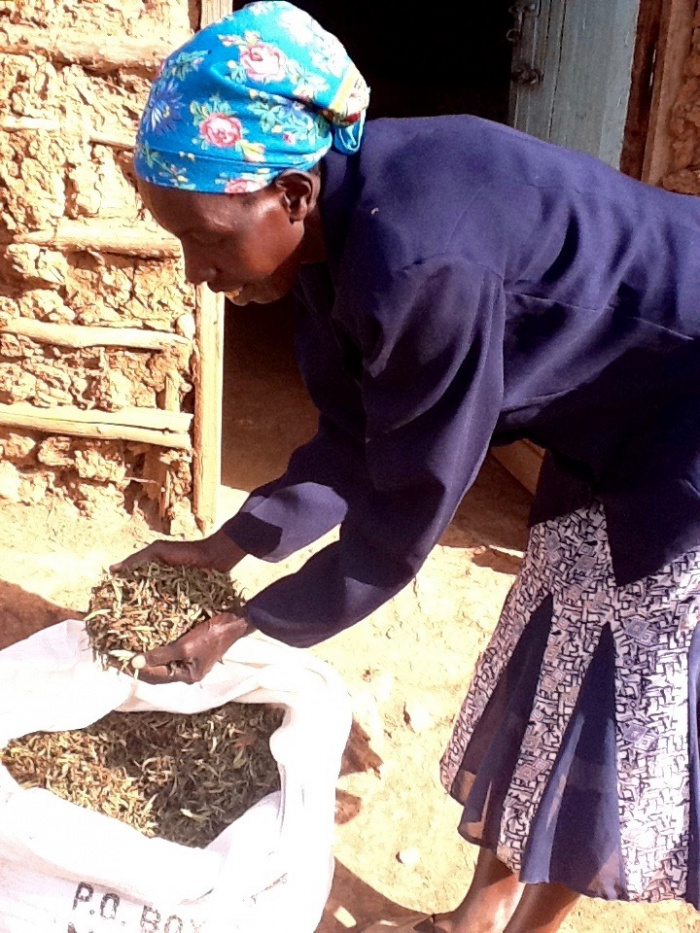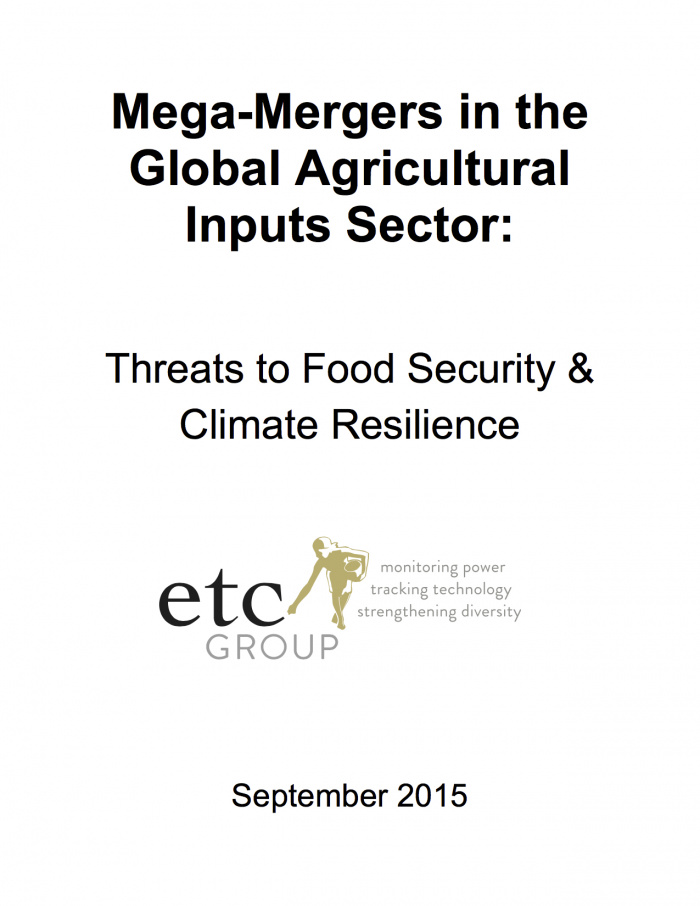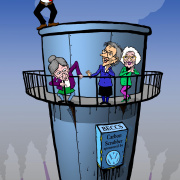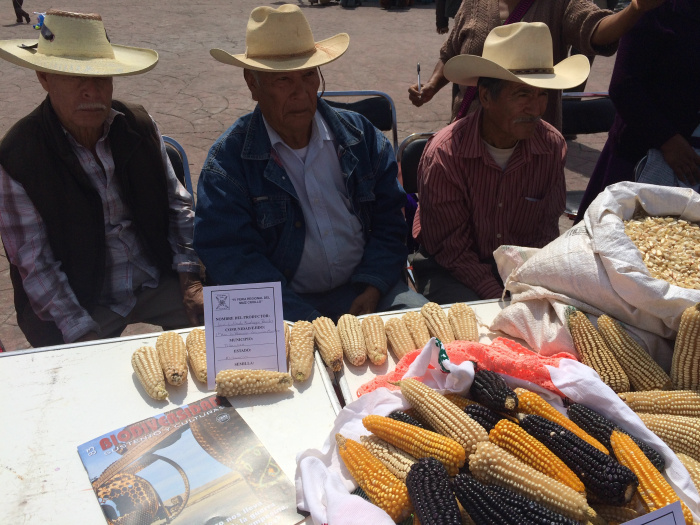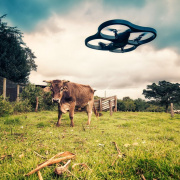Outsmarting Nature?
Submitted by Joëlle Deschambault on
Many of the world's largest agro-industrial corporations are pushing forward the poorly-defined idea of "Climate-Smart Agriculture"(CSA) to re-market industrial agriculture as 'climate-ready'. This report uncovers how some advocates of CSA are embracing the extreme genetic engineering tools of synthetic biology ("Syn Bio") to develop a set of false solutions to the climate crisis.
The 20-page report includes:
- An overview of the Players lining up behind the “Climate-Smart” brand and the Global Alliance for Climate Smart Agriculture (GACSA).

